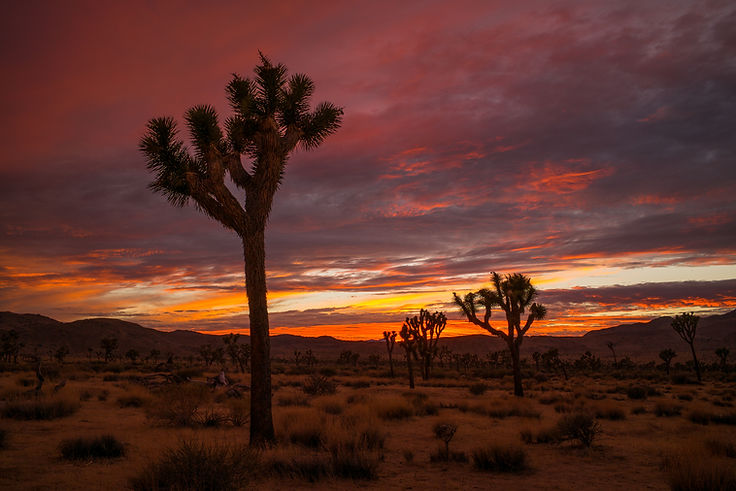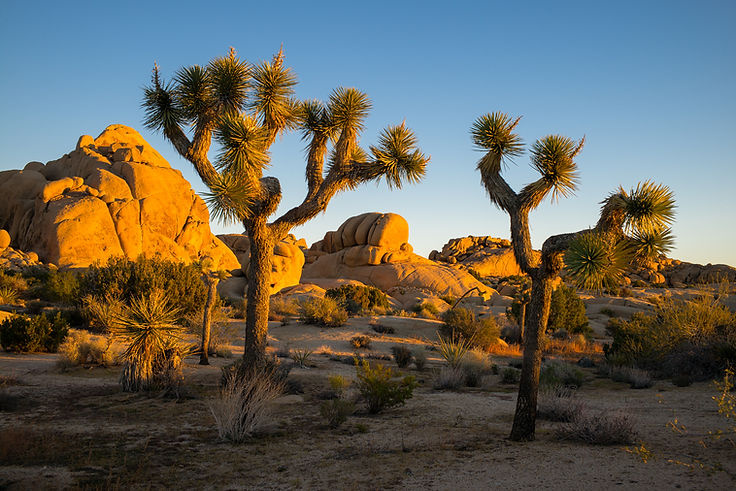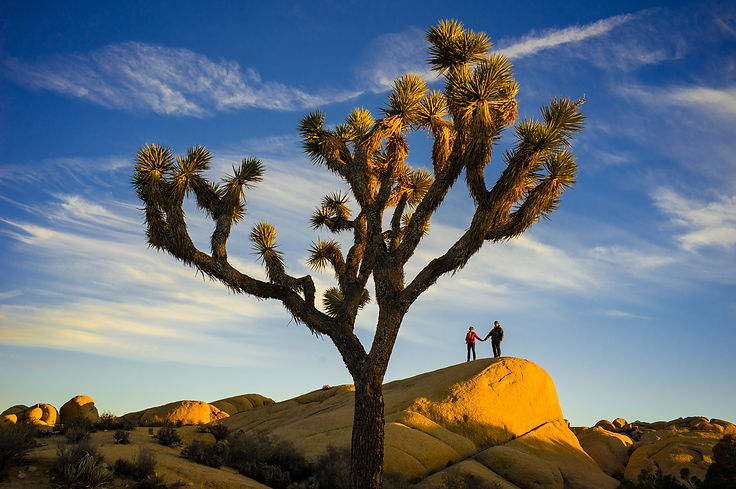top of page
Click picture for full size gallery
Click picture for full size gallery
dominic verhulst
documentary photographer
Joshua Tree National Park, California USA

scroll down
A fascinating variety of plants and animals make their homes in a land sculpted by strong winds and occasional torrents of rain. Dark night skies, a rich cultural history, and surreal geologic features add to the wonder of this vast wilderness in southern California.

Two distinct desert ecosystems, the Mojave and the Colorado, come together in Joshua Tree National Park.

Sunrise at Cholla Cactus Garden is a really beautiful experience. This “garden” is dominated by jumping cholla, named for its tendency to attach itself to the unwary.

Cholla cacti dominate this photo. The cacti are different heights. From base trunks, they then branch out. Extending from the branches are its arms or paddles that have a tubular shape. In some cases, the branches and arms are close giving them a tangled look. Each cactus stem and arm is covered in hundreds of tiny spines. Especially in the light, all of these spines give the cacti an overall soft and fuzzy, velvety appearance.

Joshua Tree National Park is named for the Joshua trees (Yucca brevifolia) native to the park. Joshua trees themselves are supposedly so named because, upon seeing them, Mormon settlers were reminded of a biblical story of Joshua reaching his hands to the sky

Although explorer John C. Fremont famously derided Joshua trees as “the most repulsive tree in the vegetable kingdom,” these grizzled looking plants that reach up to 40 feet-tall can be as beautiful as they are eccentric.

Joshua Tree does not have many of the iconic views and grand vistas that come with many of the parks of the American West. However, it has become one of my favorite places to visit because of its unique rock formations, desert vegetation and the stunning sunsets that can color the sky orange, yellow and red.

Jumbo Rocks area is another fascinating place. The rocks were formed by volcanic activity millions of years ago and have been exposed and shaped by wind and water over time. They brighten with soft pastel hues during the morning and evening sunlight and low with campfire light by night.

These jumbo rocks are a very popular place among visitors to draw indian like silhouette during sunset.

Joshua Tree National Park is a gem of a desert landscape in Southern California. Despite its beauty, the park is one that is somewhat ignored by many photographers in comparison to areas such as Death Valley National Park. For those willing to take some time to explore, Joshua Tree can allow you to capture plenty of unique photos that cannot be found at many of the other parks in the western United States.

There is no cell phone reception or free wifi but I guarantee, you will have a better connection.

Given that it is a desert landscape, choosing when to visit Joshua Tree is mostly dictated by the weather. In the summer months, high temperatures can soar over 100 degrees Fahrenheit, so choosing to travel to the park in winter will give you comfortable, dry weather in which to shoot. © Raf Ketelslagers

Sunsets along the Park Boulevard in Joshua Tree National Park are never the same. Every evening spend in the park will give you a new and different photo experience.

Sunset along the Park Boulevard in Joshua Tree National Park.
Sunset along the Park Boulevard in Joshua Tree National Park.

Sunset along the Park Boulevard in Joshua Tree National Park.

In terms of lodging, the full Joshua Tree experience means camping in the park. The campgrounds in Joshua Tree are some of the most unique and picturesque I have seen, with many of the tent sites nestled in the monzogranite rock formations and yucca plants © Raf Ketelslagers

Joshua Tree’s beauty shines around the clock, with vibrant sunsets melting into nights filled with uncountable stars.
Shot on

Leica M 240 and Leica SL
Leica Summicron-M 1:2 / 35 mm ASPH.
Leica Summicron-M 1:2 / 50 mm
Leica Elmar-M 1:3,8 / 24 mm ASPH.
bottom of page

